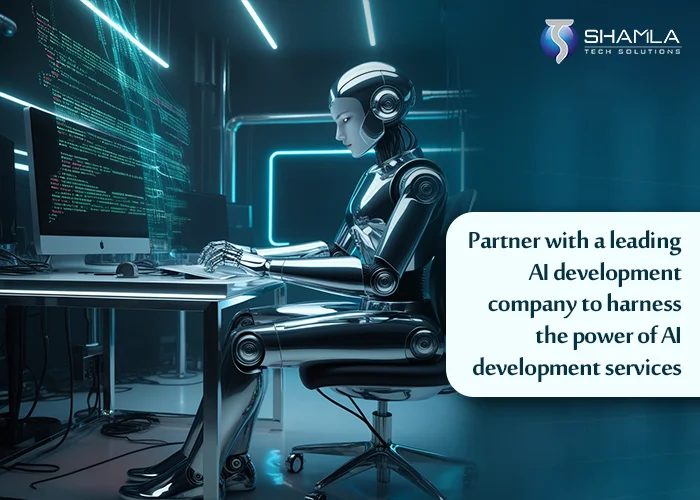
What is Artificial Intelligence?
How Does Artificial Intelligence Work?
Artificial intelligence works by using algorithms and computational processes to perform tasks that would otherwise require human intelligence. Here’s a simplified explanation of how AI technology operates:
Data Collection: AI systems rely on vast amounts of data to learn and make decisions. This data can come from various sources, such as sensors, databases, and user inputs.
Data Processing: Once collected, the data is processed and analyzed. AI uses advanced algorithms to identify patterns and extract meaningful insights from the data.
Learning: AI systems learn from the processed data using machine learning techniques. Machine learning, a subset of AI, enables systems to improve their performance over time without being explicitly programmed for each task.
Decision Making: Based on the learning process, AI systems make decisions or predictions. These decisions are made by evaluating different possibilities and selecting the best course of action based on the data.
Action: Finally, AI systems take action based on their decisions. This could involve anything from sending a notification, executing a command, or even interacting with humans.
Types of Artificial Intelligence
Understanding the types of AI is essential for grasping the full scope of its capabilities. AI is broadly classified into three types:
Narrow AI: Also known as Weak AI, this type is designed to perform a specific task. Examples include voice assistants like Siri and Alexa, and recommendation systems used by Netflix and Amazon.
General AI: Also known as Strong AI, this type has the ability to understand, learn, and apply knowledge across a wide range of tasks, similar to a human being. General AI is still theoretical and has not yet been realized.
Superintelligent AI: This type refers to AI that surpasses human intelligence across all fields, including creativity and problem-solving. It remains a speculative concept and is a topic of much debate and research.

Applications of Artificial Intelligence
Artificial Intelligence in Business
Artificial intelligence in business is revolutionizing how companies operate, make decisions, and interact with customers. Key applications include:
Customer Service: AI-powered chatbots and virtual assistants provide 24/7 customer support, resolving queries quickly and efficiently.
Marketing: AI technology analyzes consumer behavior and preferences, enabling personalized marketing campaigns that boost engagement and sales.
Finance: AI systems detect fraudulent activities, automate trading, and provide predictive analytics for better financial planning.
Supply Chain Management: AI optimizes supply chains by predicting demand, managing inventory, and improving logistics.
Human Resources: AI streamlines recruitment processes by screening resumes, scheduling interviews, and even assessing candidate suitability through video interviews.
Generative AI
New AI Technology
Difference Between AI and Machine Learning
AI Development and Services

Artificial Intelligence Development Companies
The Future of Artificial Intelligence
The future of artificial intelligence is promising, with potential advancements poised to bring even more transformative changes. Key areas to watch include:
Healthcare: AI will continue to revolutionize healthcare with predictive analytics, personalized medicine, and advanced diagnostics.
Autonomous Vehicles: AI is driving the development of self-driving cars, which promise to improve road safety and reduce traffic congestion.
Education: AI-powered personalized learning experiences will enhance education, making it more accessible and effective.
Environmental Sustainability: AI can help address environmental challenges by optimizing resource use and predicting natural disasters.
Conclusion
Artificial intelligence (AI) is a powerful technology that is reshaping the world. From its foundational principles to its diverse applications in business and beyond, AI technology continues to evolve and expand. Understanding artificial intelligence definition and artificial intelligence meaning, and how AI development and AI development services are implemented, provides a clearer picture of its vast potential.
As we look to the future, the integration of AI in various sectors promises to unlock new opportunities and solve complex problems. Whether through generative AI, new AI technology, or specialized services provided by AI development companies, the impact of artificial intelligence will undoubtedly continue to grow.
By embracing the advancements in AI and staying informed about artificial intelligence information, businesses and individuals alike can harness the power of AI to drive innovation and improve their lives. The future of artificial intelligence is bright, and its journey is just beginning.
FAQs
1. What is Artificial Intelligence (AI)?
2. How does AI technology work?
3. What are the different types of AI?
There are three main types of AI:
Narrow AI (Weak AI): Designed for specific tasks, such as voice assistants and recommendation systems.
General AI (Strong AI): Possesses the ability to understand, learn, and apply knowledge across various tasks like a human. This type is still theoretical.
Superintelligent AI: Surpasses human intelligence across all fields, including creativity and problem-solving. It remains a speculative concept
4. What is the difference between AI and machine learning?
5. How is AI used in business?
AI is used in business to enhance efficiency, decision-making, and customer experience. Key applications include:
Customer Service: AI chatbots and virtual assistants provide 24/7 support.
Marketing: AI analyzes consumer behavior to personalize marketing campaigns.
Finance: AI detects fraud, automates trading, and provides predictive analytics.
Supply Chain Management: AI optimizes inventory and logistics.
Human Resources: AI streamlines recruitment processes and talent management.
6. What is the future of Artificial Intelligence?
The future of Artificial Intelligence is promising, with advancements expected to transform various sectors. Key future developments include:
Healthcare: AI will improve diagnostics, personalize treatments, and enhance patient care.
Autonomous Vehicles: AI will drive the development of self-driving cars, improving safety and efficiency.
Education: AI will enable personalized learning experiences and improve educational outcomes.
Environmental Sustainability: AI will help in optimizing resource use and addressing environmental challenges.
AI-Driven Storytelling and Creativity: AI will create dynamic and personalized narratives in entertainment and media.








